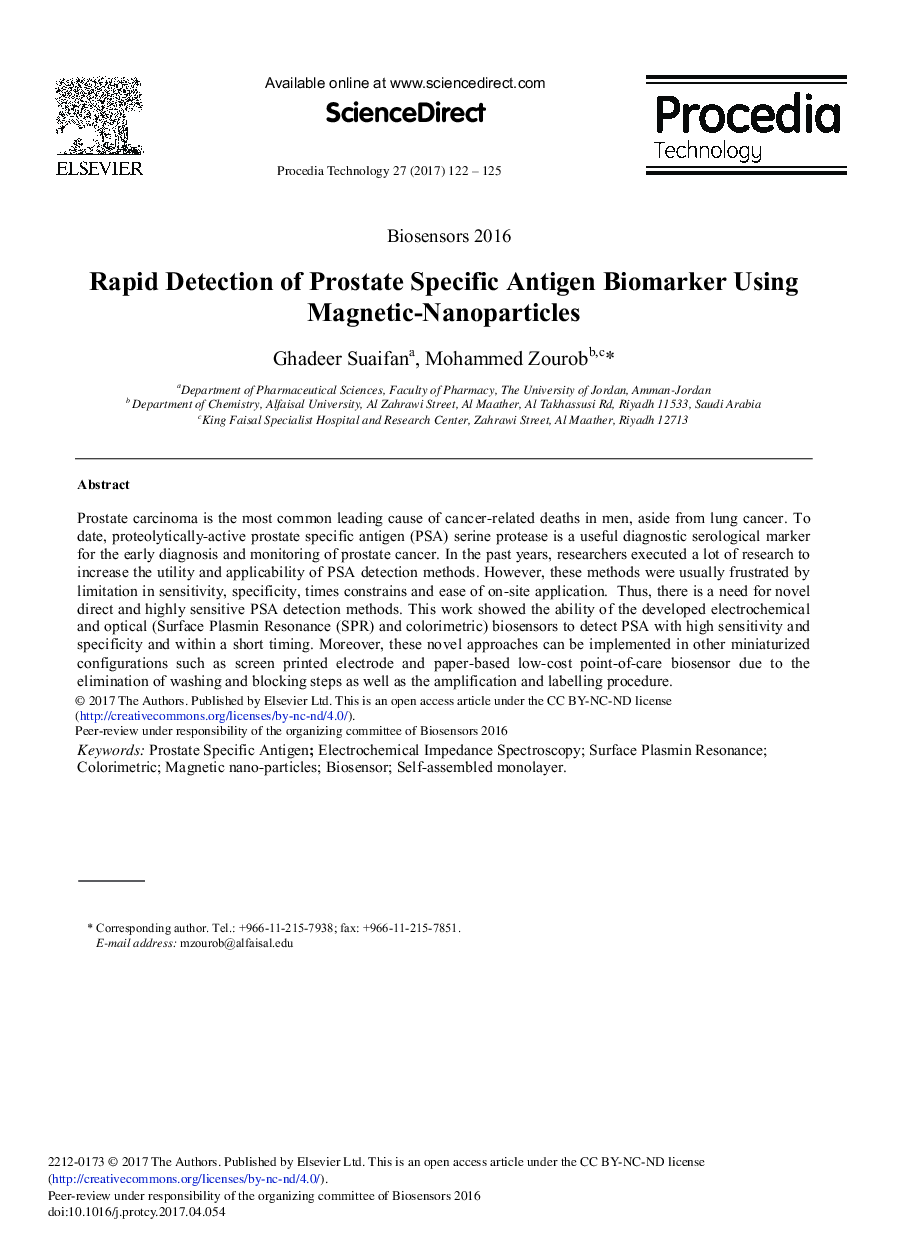| Article ID | Journal | Published Year | Pages | File Type |
|---|---|---|---|---|
| 4962374 | Procedia Technology | 2017 | 4 Pages |
Prostate carcinoma is the most common leading cause of cancer-related deaths in men, aside from lung cancer. To date, proteolytically-active prostate specific antigen (PSA) serine protease is a useful diagnostic serological marker for the early diagnosis and monitoring of prostate cancer. In the past years, researchers executed a lot of research to increase the utility and applicability of PSA detection methods. However, these methods were usually frustrated by limitation in sensitivity, specificity, times constrains and ease of on-site application. Thus, there is a need for novel direct and highly sensitive PSA detection methods. This work showed the ability of the developed electrochemical and optical (Surface Plasmin Resonance (SPR) and colorimetric) biosensors to detect PSA with high sensitivity and specificity and within a short timing. Moreover, these novel approaches can be implemented in other miniaturized configurations such as screen printed electrode and paper-based low-cost point-of-care biosensor due to the elimination of washing and blocking steps as well as the amplification and labelling procedure.
